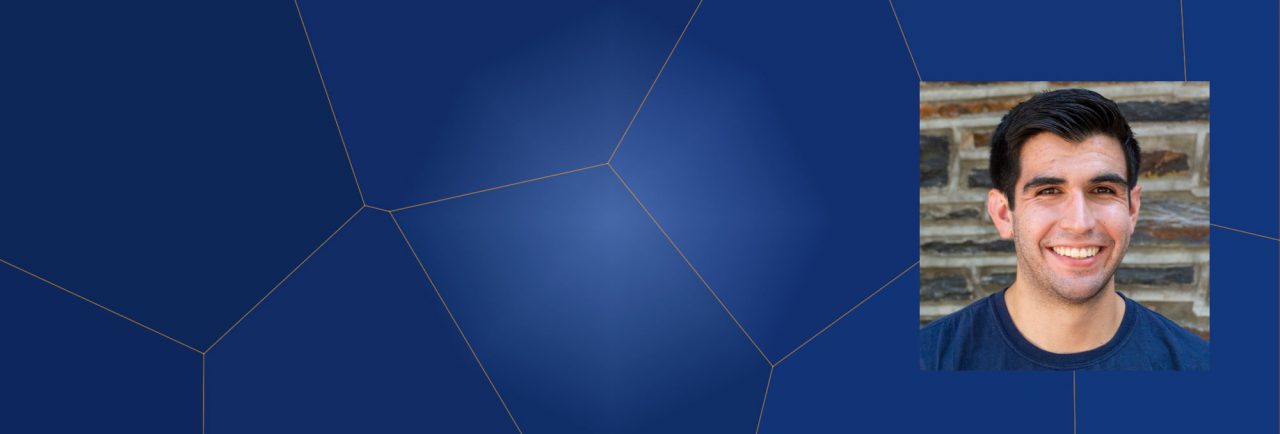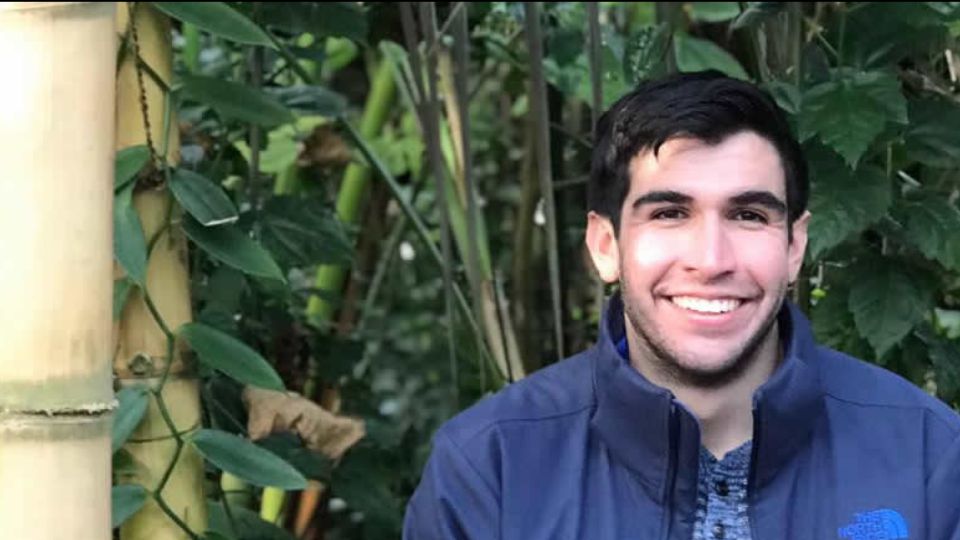Sloan Scholar Gavin Gonzales was featured in the May 2021 issue of the SloanConnect newsletter. The profile is reprinted below with permission from the Sloan Foundation.
Sloan Scholar Spotlight: Gavin Gonzales
Gavin Gonzales is a rising third-year doctoral student in biomedical engineering at Duke University, where his academic career has evolved from theoretical ideas to applied research—a journey that reflects his passion for both learning and doing.
Gavin studied physics at the University of New Mexico, researching quantum dots and how they absorb and emit light. His work as an undergrad taught him that “research is about finding what makes something work, and then studying how that implication goes further.” He enjoyed physics and was interested in his research, but he couldn’t apply it to anything outside the lab.
His first opportunity to see how research can be taken further was at Duke during a summer research program through Maximizing Access to Research Careers (funded by the National Institutes of Health). There, he worked with bioengineering and biomaterials for the first time, and he realized the appeal of applied research. Then, the summer before he started his PhD, he worked at Draper Laboratory on prosthetic heart valves for children.
Both research experiences exposed him to the power of applied research and collaboration. The experience at Draper, in particular, made him realize his passion for bioengineering and the problems it solves, specifically at the intersection of academia, industry, and research. At Draper, he participated in collaborations between Draper researchers and professors at other universities, giving him insight into how industry collaborates with academia.
Now at Duke, Gavin is researching the design of knee-joint lubricants, investigating how they bind to cartilage and can reduce the amount of wear on the joint from daily activities. He is also designing a joint-model system to mimic the body’s repeated motion on cartilage.
For Gavin, this research is more than broadly practical: he worked at a physical therapy clinic throughout high school, and he was impressed by the therapies that improved people’s quality of life. Now as an adult, Gavin is passionate about spending time outdoors, hiking, running, and his own health in general. In bioengineering, his passion for knowledge can combine with real-world applications.
While Gavin was inspired by his time in private industry, he is just as passionate about staying in academia, wanting to become a professor after he graduates. He’s seen applied research from both sides, and he’s looking forward to collaborating with other researchers and other industries. But, importantly, he also wants to mentor students.
His own experiences with mentors have motivated him to expose as many people to good mentors as he can. Not only has Gavin been a one-on-one mentor, he also works on programs that bring mentoring to communities. Most recently, he volunteered in a mentoring program with the Society for Hispanic Professional Engineers. He’s also spoken to middle and high school classrooms, highlighting why he got into research and what he finds fun about it.
“Being a mentor has made me realize that in order to help someone, you need to understand what they are looking for. Now I know I need to communicate my expectations to my mentors so they can help me. Two-way communication is very important.” When he has struggled with coursework in the past, he had a similar approach: reach out to peers with your challenges. Usually, each person is struggling in a specific way, and your classmate may have an understanding you don’t, and visa versa.
Just as Gavin seeks to apply what he learns and share that knowledge with others, he recommends other Sloan Scholars do the same. “Be ambitious, figure out your goals, and share them with as many people as you can. Make connections, advocate for yourself, and know that you can help yourself develop the most.” For him, being a Sloan Scholar (and now a member of the SloanConnect Student Advisory Committee) means having access to professional development, mentors, and friends—”a community away from home.”


